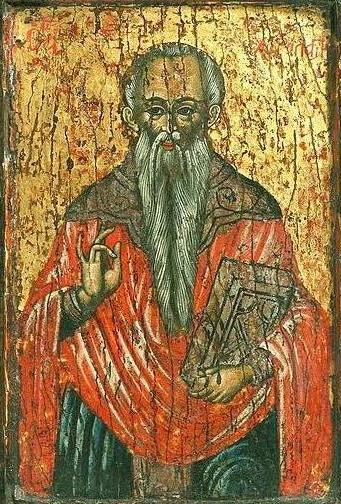Feast of St. Matthew the Apostle and Evangelist
As Jesus passed on from there, He saw a man called Matthew sitting at the tax office; and He said to him, “Follow Me.” And he rose and followed Him. And as He sat at table in the house, behold, many tax collectors and sinners came and sat down with Jesus and His disciples. And when the Pharisees saw this, they said to His disciples, “Why does your teacher eat with tax collectors and sinners?” But when He heard it, He said, “Those who are well have no need of a physician, but those who are sick. Go and learn what this means, ‘I desire mercy, and not sacrifice.’ For I came not to call the righteous, but sinners to repentance.” Matthew 9:9-13 (Gospel from Feast of St. Matthew)
Today’s feast of St. Matthew the Apostle and Evangelist is a good reminder of several things. First, we have another example of a sinner who became a saint. Not only were tax collectors the lowlifes of society in the time of Jesus, they were also thieves. There was no tax code. Tax collectors went and helped themselves to whatever tax they thought it was fair to collect, often taking not only money but other possessions. In one instant, Matthew stood up and followed Christ. Why? Because Christ asked him to. If you find yourself stuck in some kind of sin, or even stuck in some kind of rut, there isn’t a period of probation needed to resume following Jesus, just stand up TODAY and follow.
The second lesson we learn is that Jesus didn’t come to call the righteous, but the sinners to repentance. For the person who thinks he or she is perfect, there really is no room for Christ. For Christ came to heal the sick and forgive the sinner. As He said in the Gospel passage, “Those who are well have no need of a physician, but those who are sick.” If someone comes to Christ and says “I am fine just the way I am, there is no room for improvement or repentance,” then there isn’t much the Christ or the church can offer to that person. If a person comes with a humble heart, desiring to know Christ, to repent of sin and to grow in Him, this is why Christ came to earth.
The third lesson is that the church is a spiritual hospital. Today’s Gospel lesson is also the seventh Gospel reading at the Sacrament of Holy Unction. The Church exists to help heal the wounded soul, and to bring the one who has been injured by sin back to a state of spiritual wholeness. In hospitals, there are two kinds of people—those who are sick and those who are healing them. In the church, we are called to play both roles. We are ALL sick, thus we all need healing. And unlike a medical facility, where the workers must have years of specialized training, we are all called to be healers in the church. To be a healer requires only that we know Christ and have a desire to bring others to Him. In the hospital, no one plays both roles—one cannot be both doctor and patient. In the Church, however, we are all called to play both roles, and we all have the ability to both even at the same time.
Finally, Jesus said that He desires mercy and not sacrifice. He will not be pleased with material, or other, sacrifices. What is pleasing to God is a humble spirit and a giving heart. A humble spirit is open to growing in Christ. A giving heart is open to sharing Christ with others, and ministering to others with Christ-like love.
O holy Apostle and Evangelist Matthew, make intercession to our merciful God, that He grant our souls forgiveness of offenses. (Apolytkion of St. Matthew, Trans. By Fr. Seraphim Dedes)
Even the greatest sinner can become a saint.
To become a saint takes a humble spirit and a giving heart.
There is always room for spiritual improvement.
And the church is the spiritual hospital where we are to play both the role of the patient needing healing, and the physician who leads others to healing.
These readings are under copyright and is used by permission. All rights reserved. These works may not be further reproduced, in print or on other websites or in any other form, without the prior written authorization of the copyright holder: Reading © Holy Transfiguration Monastery – Brookline, MA, Apolytikion of Abbot Marcellus © Narthex Press, Kontakion of Abbot Marcellus © Holy Transfiguration Monastery – Brookline, MA.
The Revised Standard Version of the Bible is copyrighted 1946, 1952, 1971, and 1973 by the Division of Christian Education of the National Council of the Churches of Christ in the U.S.A. and used by permission. From the Online Chapel of the Greek Orthodox Archdiocese of America.
